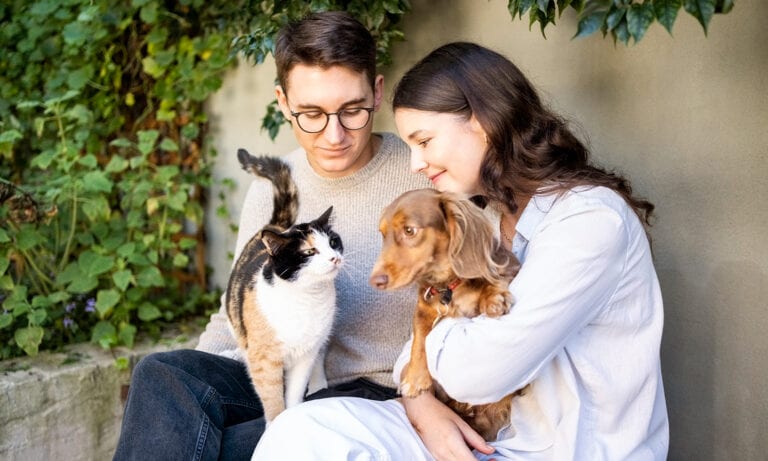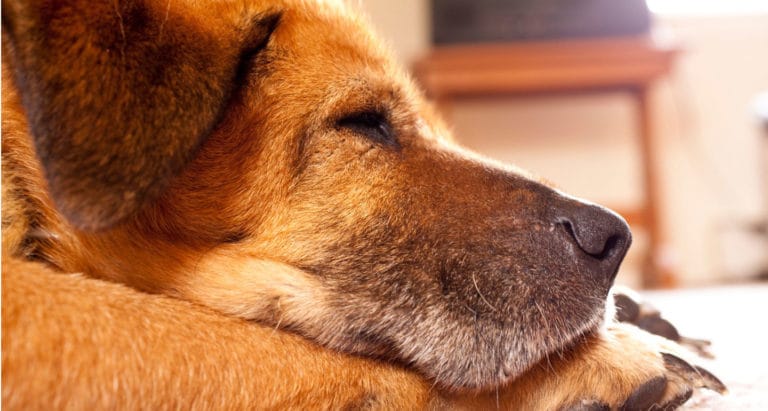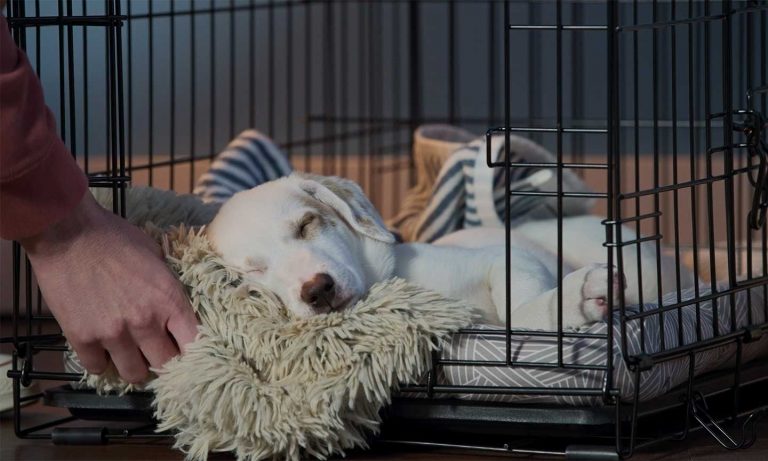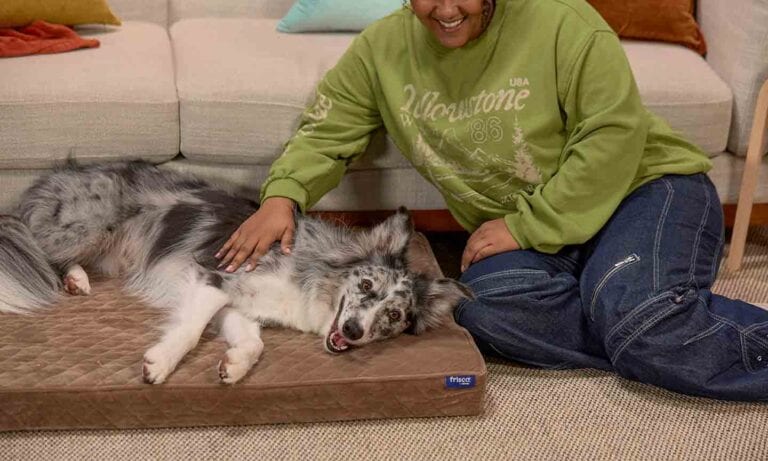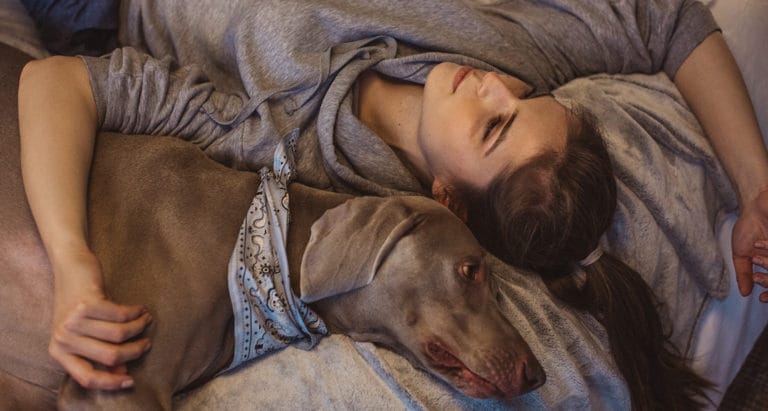It was close at times, but you (and your dog) survived puppyhood. Your 6-month-old pup is fully housebroken and no longer chews your baseboards. He completed his puppy training classes with flying colors and no longer “greets” friends at the door by giving them uninvited paw hugs and slobbery kisses. And you are finally once again well rested because your puppy sleeps through the night. The two of you are in sync just like you dreamed about. Well, brace yourself for the changes of adolescence that are just around the corner. Learn how your young dog’s developmental changes affect his sleep cycles — and how you can help during this transition.
How Much Should a Dog Sleep?
Your young dog’s seemingly endless running and fetching requires frequent refueling of his batteries. While your young dog won’t catch as many ZZZs as he did when he was a tiny pup, your young dog may still sleep an impressive 14 to 16 hours a day during this period of his life. This is just an average and some dogs will sleep more and others less, and growth spurts during his adolescence will cause him to catch even more naps.
Growing Pains
Behaviorally speaking, adolescence is the period where nature demands that your dog learn to make decisions himself, based on his own desires. My own loyally obedient Poodle pup had what seemed to be an innate need to please me; but as soon as puberty kicked it, all manners were out the door. Giving commands no longer did the trick, so to speak.
Though challenging, it helped me to remember — and repeat — “this isn’t rebellion,” it’s just the way nature designed dogs (and human teens, too). Adolescence passes quickly enough, and after some trial and error, you should be able to find out what best motivates your dog.
Dog Sleeping Problems
While the number of hours young dogs sleep may seem excessive to you, in some cases it can indicate a medical problem. Generally speaking, if you see changes beyond sleeping more, such as sluggish behavior while awake or a change in appetite, this may indicate illness. The extra exercise from excess energy also increases the likelihood of minor puppy injuries. If you notice your dog develops a limp and seems to be sleeping more simultaneously, it’s time to seek veterinary care.
If your young dog seems to be waking frequently from sleep or not sleeping enough, he may suffer from a medical problem, such as sleep apnea. With obstructive sleep apnea, the throat muscles loosen during sleep and prevent the free flow of air. Snoring loudly, intermittent pauses in his breathing and frequent waking are commonly noticed by pet owners when a dog suffers from sleep apnea. Sleeping too little can be detrimental to your dog’s personality and health, so seek veterinary care if you have concerns.
How Long Will This Last?
In veterinary school we learned the period of adolescence in dogs begins around 7 months of age, depending on the breed. While much growth occurs by 12 months of age, adolescence can last well until the age of 2. If this sounds like a daunting amount of time, remember that the worst of it should only a few months. If you have a large-breed dog, expect him to take longer to transition into a full-fledged adult.
Resetting the Clock
As your puppy transitions into adulthood, his internal clock undergoes changes, and when he wakes and when he retires may shift. If your young dog is having trouble sleeping, try the following suggestions to help.
1. Stick to a schedule. Tough as it might be, try to keep your weekday and weekend routine bedtimes and wake times as close to each other as reasonably possible. Dogs of all ages behave best when they know what is expected of them.
2. Schedule play sessions during the day. Your growing dog needs a constructive outlet for his seemingly boundless energy. Interactive games of fetch, reviewing commands he mastered as a pup, and playing Frisbee are all great for zapping his energy. If you aren’t at home during the day, consider a program such as doggy day camp. If he gets plenty of regular aerobic and mental exercise during the day, he will be more likely to settle down and sleep well at night.
Exercise tip from the Doc: During adolescence, your dog’s bones are still developing, and intense exercise such as running on a leash can be harmful. Make sure to avoid this type of dangerous exercise.
3. Keep calm, and wag on. Encourage your young dog to wind down at night with a relaxing petting or massage session. Not only will it help your dog sleep, it will strengthen your bond and lower your own blood pressure, too, helping you both drift to sleep more easily.
Share:

